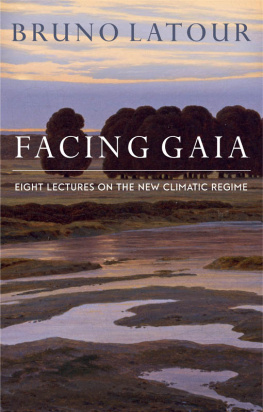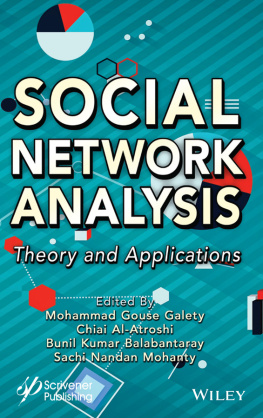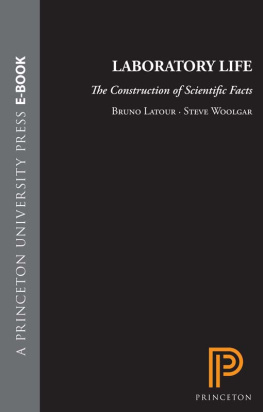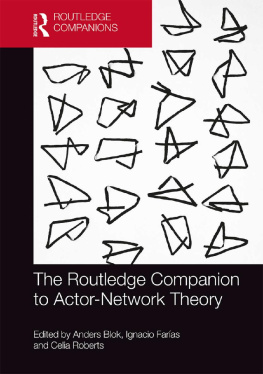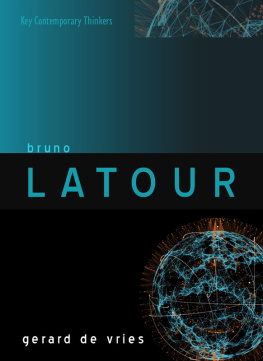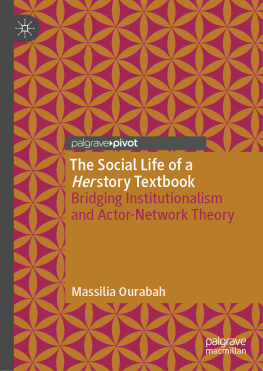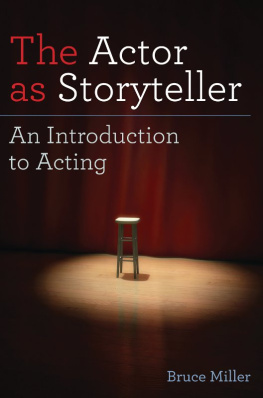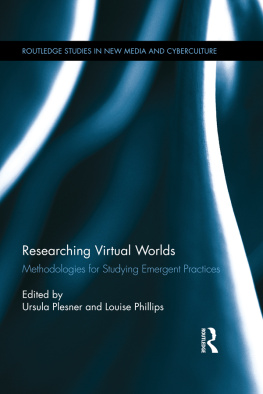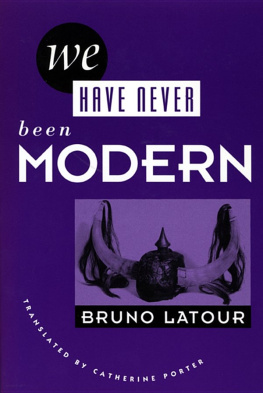Latour - Reassembling the social: an introduction to actor-network-theory
Here you can read online Latour - Reassembling the social: an introduction to actor-network-theory full text of the book (entire story) in english for free. Download pdf and epub, get meaning, cover and reviews about this ebook. year: 2007, publisher: Oxford University Press, Incorporated, genre: Politics. Description of the work, (preface) as well as reviews are available. Best literature library LitArk.com created for fans of good reading and offers a wide selection of genres:
Romance novel
Science fiction
Adventure
Detective
Science
History
Home and family
Prose
Art
Politics
Computer
Non-fiction
Religion
Business
Children
Humor
Choose a favorite category and find really read worthwhile books. Enjoy immersion in the world of imagination, feel the emotions of the characters or learn something new for yourself, make an fascinating discovery.

Reassembling the social: an introduction to actor-network-theory: summary, description and annotation
We offer to read an annotation, description, summary or preface (depends on what the author of the book "Reassembling the social: an introduction to actor-network-theory" wrote himself). If you haven't found the necessary information about the book — write in the comments, we will try to find it.
Latour: author's other books
Who wrote Reassembling the social: an introduction to actor-network-theory? Find out the surname, the name of the author of the book and a list of all author's works by series.
Reassembling the social: an introduction to actor-network-theory — read online for free the complete book (whole text) full work
Below is the text of the book, divided by pages. System saving the place of the last page read, allows you to conveniently read the book "Reassembling the social: an introduction to actor-network-theory" online for free, without having to search again every time where you left off. Put a bookmark, and you can go to the page where you finished reading at any time.
Font size:
Interval:
Bookmark:
REASSEMBLING THE SOCIAL
The Clarendon Lectures in Management Studies are jointly organised by Oxford University Press and the Sad Business School. Every year a leading international academic is invited to give a series of lectures on a topic related to management education and research, broadly defined. The lectures form the basis of a book subsequently published by Oxford University Press.
CLARENDON LECTURES IN MANAGEMENT STUDIES:
The Modern Firm
Organizational Design for Performance and Growth
John Roberts
Managing Intellectual Capital
Organizational, Strategic, and Policy Dimensions
David Teece
The Political Determinants of Corporate Governance
Political Context, Corporate Impact
Mark Roe
The Internet Galaxy
Reflections on the Internet, Business, and Society
Manuel Castells
Brokerage And Closure
An Introduction to Social Capital
Ron Burt
Reassembling the Social
An Introduction to Actor-Network-Theory
Bruno Latour
Science, Innovation, and Economic Growth (forthcoming)
Walter W. Powell
The Logic of Position, The Measure of Leadership
Position and Information in the Market (forthcoming)
Joel Podolny
Global Companies in the 20th Century (forthcoming)
Leslie Hannah
An Introduction to Actor-Network-Theory
Bruno Latour


Great Clarendon Street, Oxford OX2 6DP
Oxford University Press is a department of the University of Oxford.
It furthers the Universitys objective of excellence in research, scholarship,
and education by publishing worldwide in
Oxford New York
Auckland Cape Town Dar es Salaam Hong Kong Karachi
Kuala Lumpur Madrid Melbourne Mexico City Nairobi
New Delhi Shanghai Taipei Toronto
With offices in
Argentina Austria Brazil Chile Czech Republic France Greece
Guatemala Hungary Italy Japan Poland Portugal Singapore
South Korea Switzerland Thailand Turkey Ukraine Vietnam
Oxford is a registered trade mark of Oxford University Press
in the UK and in certain other countries
Published in the United States
by Oxford University Press Inc., New York
Bruno Latour 2005
The moral rights of the author have been asserted
Database right Oxford University Press (maker)
First published 2005
First published in paperback 2007
All rights reserved. No part of this publication may be reproduced,
stored in a retrieval system, or transmitted, in any form or by any means,
without the prior permission in writing of Oxford University Press,
or as expressly permitted by law, or under terms agreed with the appropriate
reprographics rights organization. Enquiries concerning reproduction
outside the scope of the above should be sent to the Rights Department,
Oxford University Press, at the address above
You must not circulate this book in any other binding or cover
and you must impose the same condition on any acquirer
British Library Cataloguing in Publication Data
Data available
Library of Congress Cataloguing in Publication Data
Data available
Typeset by SPI Publisher Services, Pondicherry, India
Printed in Great Britain
on acid-free paper by
Ashford Colour Press Ltd, Gosport, Hampshire
ISBN 978-0-19-925604-4 (Hbk.) 978-0-19-925605-1 (Pbk.)
1 3 5 7 9 10 8 6 4 2
To the doctoral students I had the good fortune of accompanying through some of their travails
Figure 1

This book has passed through many avatars. It began almost thirty years ago when I had the chance of being taught primate sociology by Shirley Strum and her baboons in Kenya. Although that project with Shirley has remained in limbo, it has been the staple of my teaching of sociology to young engineers at the School of Mines in Paris. When, in 1996, I was offered to give the Leclerc lectures in Louvain-la-Neuve, I decided it was about time to synthesize what I had learned from Michel Callon, John Law, Madeleine Akrich, Andy Barry, Annemarie Mol, Antoine Hennion, and many others in what had become known as Actor-Network-Theory. Time and again, I have found that readers were puzzled not so much by our views on scientific practice and various other topics, but rather by the unusual meaning we gave to the words social and social explanations. And yet, this alternative social theory has never been the object of a systematic introduction. Instead of complaining that this small school of thought had become a monster that had escaped its Frankensteinian makers, I decided it might be fairer to present interested readers with its intellectual architecture.
It was only in 1999, when Barbara Czarniawska asked me to give a crash course in social theory compatible with the needs of organization studies, that I began to write down a complete draft. Although the present text has not made use of the transcript Barbara had so kindly arranged for, I owe much to her and to her Gteborg students for the organization of the material that, in addition, had been rehearsed at the London School of Economics in the Department of Information Systems in the winters of 1999, 2000 and 2001. When my old friend Steve Woolgar, through the auspices of the Sad Business School, asked me to give the Clarendon Lectures in the fall of 2002, I wrote another draft which has since been discussed in varying degrees of detail by Andrew Barry, Howie Becker, Geof Bowker, Franois Cooren, Didier Debaise, Gerard de Vries, Emilie Gomart, Fabian Muniesa, Noortje Marres, Shirley Strum, Albena Yaneva, Benedikte Zitouni, and Edgar Whitley that has resulted in this new version. Finally, it was submitted to a second round of critiques by Michael Flower, Jean-Toussaint Leca, Michael Lynch, Paolo Quattrone, Isabelle Stengers and Eduardo Vargas. I wish I could say that all remaining defects are theirs and not mine.
My greatest debt goes, however, to the doctoral students who have participated over the years in my thesis-writing workshops. In a discipline in which I have never been trained but to which I have never despaired of contributing, they have been my best and most patient teachers.
I hope that such a protracted and idiosyncratic genesis goes some way toward explaining the opinionated nature of this piece of work. Now that this alternative social theory has been presented in an orderly fashion, readers can decide to put it to use, to distort it beyond recognition, or, most likely, to drop it altogetherbut this time knowingly! As for me, I have finally discovered in writing this book the conditions under which I could be proud of being called a sociologist.
T he argument of this book can be stated very simply: when social scientists add the adjective social to some phenomenon, they designate a stabilized state of affairs, a bundle of ties that, later, may be mobilized to account for some other phenomenon. There is nothing wrong with this use of the word as long as it designates what is
Next pageFont size:
Interval:
Bookmark:
Similar books «Reassembling the social: an introduction to actor-network-theory»
Look at similar books to Reassembling the social: an introduction to actor-network-theory. We have selected literature similar in name and meaning in the hope of providing readers with more options to find new, interesting, not yet read works.
Discussion, reviews of the book Reassembling the social: an introduction to actor-network-theory and just readers' own opinions. Leave your comments, write what you think about the work, its meaning or the main characters. Specify what exactly you liked and what you didn't like, and why you think so.

